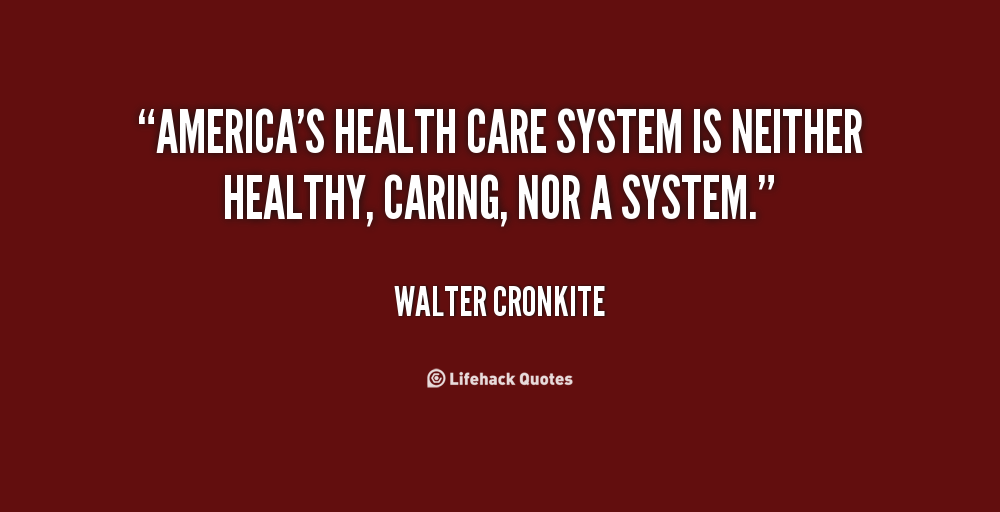
I’m a binge reader. Primarily non-fiction and historical fiction. My current binge has included books by two noted physician authors. The first by a general surgeon on the topic of “dying well” and the second by a cardiologist on the subject of how technology is fundamentally altering the way we “do healthcare.” The books were all at once sobering and enlightening. Both have had a profound influence on me and served as the inspiration for this post.
To set the stage, it’s important to understand the significant shifts taking place in healthcare. From sick care to well care. From volume to value. From competition to collaboration. From inpatient to outpatient. From patient satisfaction to patient experience. From reactive to predictive. From print to digital. From formulaic reimbursement to calculated risk. From defined benefit to defined contribution. From fragmentation to connection.
Experiencing the death of both my parents, working in the health industry for more than 20 years and reading two books –Dr. Atul Gawande’s Being Mortal and Dr. Eric Topol’s The Patient Will See You Now – has put all of these changes in perspective for me, sparking some interesting insights. First, despite being immersed in health both personally and professionally, things are changing at such a rapid pace that it is difficult for even the most educated to keep up. Second, despite the dismal statistics about the poor health of our nation, the rising cost of care, and the frustrating politics surrounding it, we are in a season of transformation that will forever change healthcare in America – potentially for the better. And third, while technological innovations, including the smartphone, are a significant catalyst for this transformation, they will not be enough.
We must couple these innovations with new mindsets and behaviors to truly revolutionize healthcare for baby boomers and subsequent generations.
- Being human. Seems basic enough, but unfortunately, this fundamental of great healthcare is missing from most hospitals, doctor’s offices and nursing homes. We have favored process, when kindness was needed. We have traded human touch for mouse clicks. And we have elevated treatment over care. So for all the talk about personalized medicine and holistic care –which have their place – the real revolution will occur when we engage with each other as human beings. When we see beyond a medical record number, a diagnosis or an appointment. When we appreciate that each person has a family, a history, and a unique story. When we realize that each of us has personal fears, hopes and goals. And, that these things may run counter to “modern medicine,” “doctor’s orders” and “best practices.” Being human isn’t a metric, but it’s the key to delivering on the patient experience.
- Being courageous. Real change, real transformation is not for the faint of heart. It requires that we all step a bit outside of what we think we know, or where we feel most comfortable. For doctors, according to Dr. Topol, this is going to require a shift away from a long history of paternalism and toward shared decision making. He writes “While the doctor may indeed have the most knowledge, that doesn’t mean he or she knows best.” For patients, it will require asking more questions, challenging the status quo, refusing certain procedures or even discharging oneself against medical advice, as Dr. Gawande once encouraged his mother-in-law to do. And for nurses, therapists and other caregivers, being courageous may mean lobbying to be able to practice to the full extent of your license or speaking up rather than turning a blind eye to injustices to colleagues or patients, or fraudulent behavior by those in positions of power. Being courageous is about doing the right thing for the right reasons. It’s about making sure that there’s never a Big Short in healthcare, like there was in the housing market.
- Being mortal. I’m hoping Dr. Gawande will allow me the latitude of using his book title for this one, since the third key to revolutionizing healthcare is to change our perspective and our approach to aging, death and dying. In his book, Gawande shares his insights as a surgeon, an author/researcher, and as a son who experienced the death of his father. Each of these perspectives sheds light on the drivers and implications of our behaviors – as patients, family members and caregivers. He raises important questions, like whether certain decisions are really prolonging life, versus prolonging death. Is it about more time or better quality of life? Turns out, it depends on who you ask, and when you ask. He explores different residential settings and models for the aging, challenging the premium placed on safety at the expense of independence. He also explains how physicians, including him, have been trained to address a disease rather than a person. Dr. Gawande also shares the evolution of his own behaviors, influenced by a contrasting experience he had with two surgeons weighing in on treatment for his father and what he learned from palliative care and hospice clinicians. One of the biggest lessons from these experts is equally applicable to physicians and family members – that we do more asking and listening, and less talking and fixing. For many, including me, it’s not death they fear, but dying; and, it’s not necessarily aging they fear, as much as loss of control and purpose. To revolutionize healthcare as we age and as we die, we must face our own mortality head on – patients, family members and caregivers. And to do that, we need to revisit point #1.
